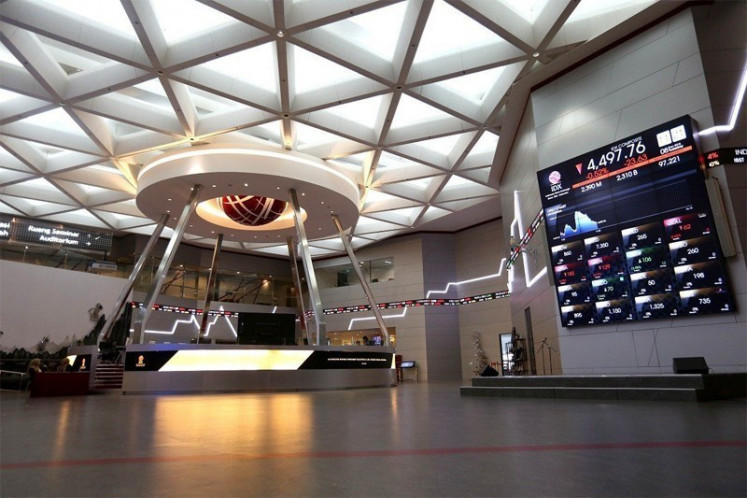Popular Reads
Top Results
Can't find what you're looking for?
View all search resultsPopular Reads
Top Results
Can't find what you're looking for?
View all search resultsHealth-care scheme in tatters
Almost three years after it was first implemented in January 2014, hailed by many at the time as a landmark in Indonesian history, the government’s universal health-care scheme is in tatters, with one problem after another plaguing its operation
Change text size
Gift Premium Articles
to Anyone
A
lmost three years after it was first implemented in January 2014, hailed by many at the time as a landmark in Indonesian history, the government’s universal health-care scheme is in tatters, with one problem after another plaguing its operation.
The latest problem has to do with a scarcity of drugs. According to the University of Indonesia’s (UI) public health department, almost 50 percent of national health insurance (JKN) patients have had to buy drugs with their own money outside of hospitals.
The findings were revealed a day after the same department released a study saying it had found indications of hospital fraud in the JKN program. For example, hospitals have at times discharged patients early so that the hospitals could charge them twice.
“Last year, there were more than 70 million outpatients, so there was a huge number of patients paying for drugs with their own money,” UI public health department head Hasbullah Thabrany said. “The drug prices range from Rp 50,000 [US$3.75] to more than Rp 100,000. That’s a lot for the lower class.”
Moreover, almost 30 percent of inpatients and 20 percent of outpatients have had to buy drugs from hospitals, even though the JKN program was supposed to cover all medications. The figures are based on data from 2015.
The scarcity stems from many things, especially weaknesses in the procurement system, Hasbullah said.
Since 2014, drug procurement in public health-care facilities has been done through an e-catalogue. The government set up the e-catalogue based on national drug demand and estimated drug prices. The government would then conduct a tender to determine which pharmaceutical companies would cater to the demand.
Unfortunately, the tender system discriminates against producers of branded drugs, a practice that has been ongoing since 2010 when the Health Ministry issued a regulation requiring public health-care facilities to prioritize the use of generic drugs in order to ease the burden on patients.
“Why is it that things applied in the past are still being applied today when things are different?” International Pharmaceutical Manufacturers Group executive director Parulian Simanjuntak said.
The tender system, which favors generic drugs with the lowest prices, has resulted in a lack of drug availability for JKN patients as sometimes the drug manufacturers cannot produce the needed drugs in time.
A recent study by the UI public health department, published in the July 2016 edition of the Indonesian Journal of Health Economics, found that often there was not enough time for a tender winner to prepare a particular drug in an amount corresponding to the commitment.
Furthermore, the current tender system only allows one winner for each province, severely limiting the availability of drugs.
For instance, Djauhari Thalib, director of the Handayani Hospital in Lampung, said he had trouble meeting the demand for a type of IV fluid because the tender winner in Lampung ran out of stock. Therefore, the hospital had to buy the IV fluid from outside the e-catalogue at higher prices.
“Before the fasting month, I ordered 10,000 bottles of the IV fluid directly from the producer. However, until this day, they haven’t come. So, we were forced to buy from outside the system,” he said.
Besides that, the tender system discourages many pharmaceutical companies from producing new drugs because they see no incentive in doing so, according to Parulian.
“If multinational pharmaceutical companies cease to exist in the future because they are blocked [by the tender system], then from where will Indonesia get new drugs? This is important because generic drugs can only exist if there are new and innovative drugs being produced by multinationals,” he said.










